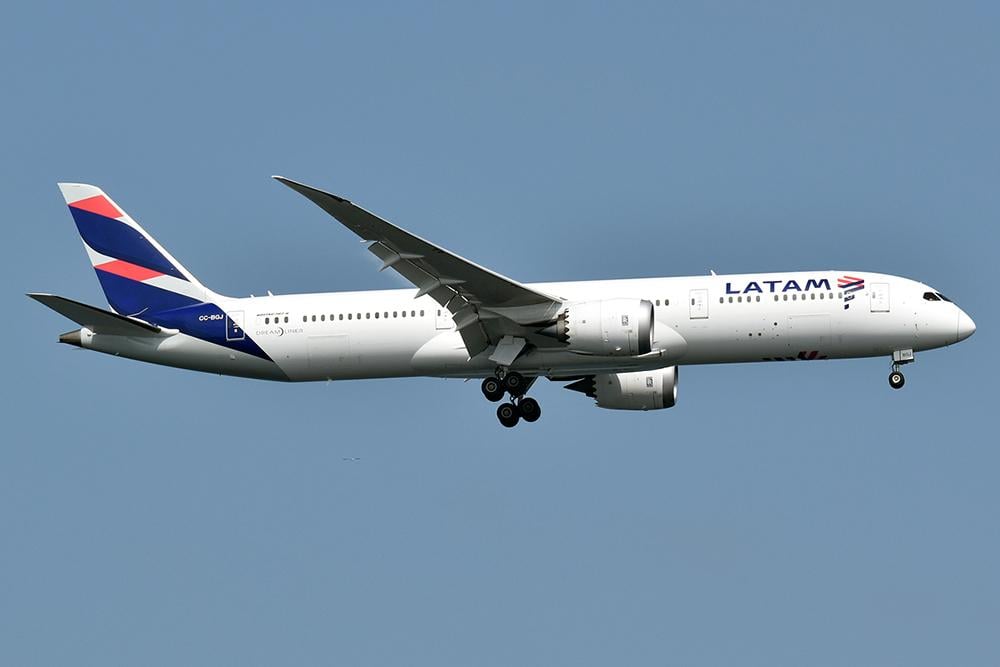
While U.S. airlines have long used Latin America for heavy maintenance checks, the continent’s indigenous airlines are also pursuing offshoring solutions of their own.
LATAM Airlines recently signed an agreement for C checks of three Boeing 787s with Amman, Jordan-based Joramco, headquartered roughly 8,077 mi. from the LATAM group’s base in Santiago, Chile.
LATAM signed the deal despite making significant efforts since its restructuring to bring maintenance in house, with South America’s biggest airline group now outsourcing just 19% of its heavy maintenance services, versus 32% before the pandemic.
One reason for this was to mitigate long turnaround times and limited slots at third-party MRO providers, according to Marcos Melchiori, senior manager of LATAM Airlines Group’s MRO facilities in Brazil, who spoke to Inside MRO in March about capacity constraints in the wider MRO market.
“Virtually all other airlines with which we maintain friendly relations report that this has increasingly become an important issue, with a worsening trend in the coming years,” he said. “This is one of the factors that leads us to believe that the movement toward internalization is also important from a strategic standpoint.”
However, there appear to be few such constraints at Joramco, which is scheduled to receive the first of LATAM’s 787s in July.
The Dubai Aerospace Enterprise-owned MRO provider will also perform 787 heavy checks for European travel group TUI, having signed a contract in March.
Airframe heavy maintenance for the global 787 fleet will be worth roughly $240 million this year and rise to $360 million toward the end of the decade, according to Aviation Week Network’s 2024 Commercial Fleet and MRO Forecast.
Joramco also has a longstanding heavy maintenance contract for Boeing 737s from Dublin-based Ryanair.





